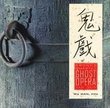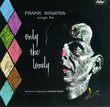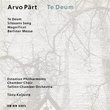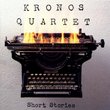| All Artists: Arnold Schoenberg, Anton Webern, Alban Berg, Antal Dorati, Harold Lawrence, London Symphony Orchestra, Helga Pilarczyk Title: Vienna: Music by Schoenberg, Webern and Berg Members Wishing: 0 Total Copies: 0 Label: Philips Release Date: 9/12/1990 Genres: Pop, Classical Styles: Vocal Pop, Opera & Classical Vocal, Historical Periods, Modern, 20th, & 21st Century, Symphonies Number of Discs: 1 SwapaCD Credits: 1 UPC: 028943200622 |
Search - Arnold Schoenberg, Anton Webern, Alban Berg :: Vienna: Music by Schoenberg, Webern and Berg
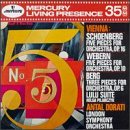 | Arnold Schoenberg, Anton Webern, Alban Berg Vienna: Music by Schoenberg, Webern and Berg Genres: Pop, Classical
Schoenberg's Five Pieces were a Mercury Living Presence specialty. They were recorded first in mono, with the Chicago Symphony Orchestra under Rafael Kubelik (a great performance recently reissued on CD), and then again... more » |
Larger Image |
CD DetailsSynopsis
Amazon.com Schoenberg's Five Pieces were a Mercury Living Presence specialty. They were recorded first in mono, with the Chicago Symphony Orchestra under Rafael Kubelik (a great performance recently reissued on CD), and then again in stereo--this version is also excellent. It's all the more amazing when you consider that in the 1950s and early '60s they were considered by most concertgoers to be the musical Antichrist. Today it's a little hard to see what the fuss was about. They are actually quite beautiful, sort of atonal Debussy, and along with the Berg and Webern pieces, these may have been the first professional recordings that really did justice to the works of the Second Viennese School. They still sound great--a tribute to both Antal Dorati and Mercury. --David Hurwitz Similarly Requested CDs
|
CD ReviewsAs If It Was Just Music, Which It Is Eugene G. Barnes | Dunn Loring, VA USA | 04/01/2001 (5 out of 5 stars) "Here are some full-bodied orchestral works from the Big Three composers of twelve-tone music (though the pieces may not all be strictly twelve-tone). You can load this CD into your multi-disc player along with other early Twentieth Century pieces that are not twelve-tone and they will fit right in. The secret is Dorati's approach to this music: He treats them just as if they were regular pieces of music, not something to examine as an historical curiosity, not something to work hard at exposing all the details (at the expense of each piece's wholeness), and certainly not something to worship. They're just naturally and sympathetically played, and all those nice details show up anyway.The recordings harken from that era when Mercury was using the 35 MM film system of recording, and the good news about that is that the "tape hiss" you would normally associate with a recording from this era is tremendously low. All you get is the music.The final offering, the suite from the opera "Lulu", has an added soprano, Helga Pilarczyk. She is a committed participant, although her highs are not too great. But what the heck, she is hardly given anything to sing, so don't let that hold you back. Altogether, this is a startlingly good CD, 75 minutes of terrific music played the way you most want to hear it." One of Dorati's Best Recordings T. Beers | Arlington, Virginia United States | 10/01/2001 (5 out of 5 stars) "One of the most famous records of the Lp era contained these gorgeous performances of Schoenberg, Berg and Webern, performances that establish those composers' important connections with Mahler and Debussy. Now resplendently remastered for cd, they still shine. If you're at all shy when it comes to the music of Schoenberg and the rest of the "Second Viennese School," take the plunge with this disk! Dorati positively milks these scores for drama without sacrificing any of their inherent poetry and, yes, real charm. Sound quality remains spectacular after 40 years. Note that the cd contains all the music on the original Lp, and generously adds to it a great performance of Berg's "Lulu Suite" taken from another famous Living Presence Lp that also contained excerpts from Berg's earlier opera, "Wozzeck." (P.S. You can find the "Wozzeck" excerpts included on Dorati's awesome Mercury cd of Bartok's opera "Duke Bluebeard's Castle." Another "must have" classic!)" Dorati does it again Phil Avetxori | 09/07/2002 (4 out of 5 stars) "Here is nice collection of orchestral works by the second Viennese school, the big three of atonality:Schoenberg, Webern, and Berg. Antal Dorati, conducting the London Symphony Orchestra, brings the same fire and verve to these touchstones of musical Modernism that was so amply displayed in his legendary recording of Stravinsky's "Le Sacre Du Printemps" with the Minneapolis Symphony Orchestra (one of my all-time favorite classical recordings). The Schoenberg pieces are full of rich texture and intriguing rhythmic juxtapositions, definitly a good introduction to the work of this challenging composer. The concise angular miniatures of Webern's "Five Pieces" for orchestra last only a little longer than four minutes, and are stunningly concise and inventive, with nary a note wasted. These are priceless sonic jewels that rank up there with the composer's "Six Bagatelles" for string quartet in economy and invention, with an equally precise placement of silences that thunder with the same authority as the notes(if only a little softer!). Berg is a composer I'm less familiar with, but these works seem to support his reputation as the most "traditional" of the three. His pieces have a lushness and density of sound not found in most of Schoenberg, and certainly not in Webern. They strike me as less inventive than the works of the other two, like Romantic music without the dramatic tonality. Consequently, Berg's works don't demand my attention like those of Schoenberg and Webern; but a more traditional classical music listener might get more out of them than I do. All in all, a nice, well-conducted collection with surprisingly good sound (only a little tape hiss, here and there), considering that these are recordings from the early 60's."
|

 Track Listings (14) - Disc #1
Track Listings (14) - Disc #1
